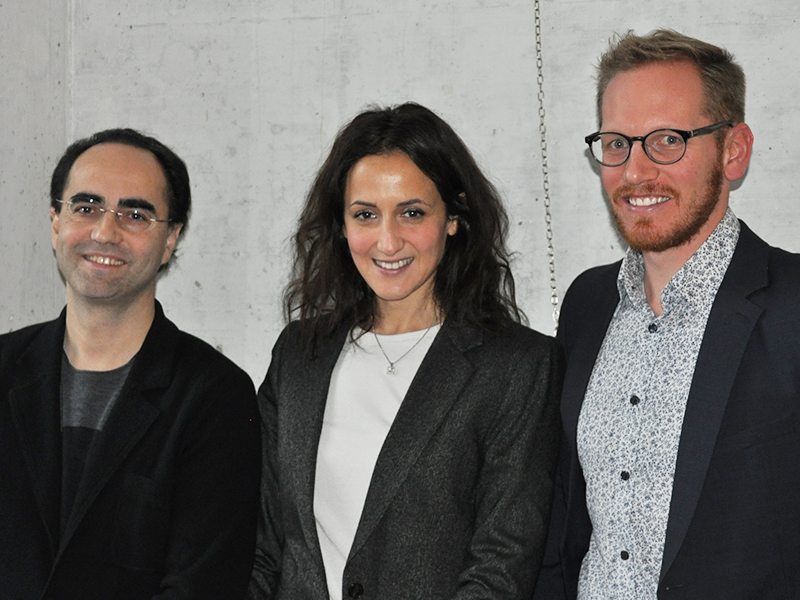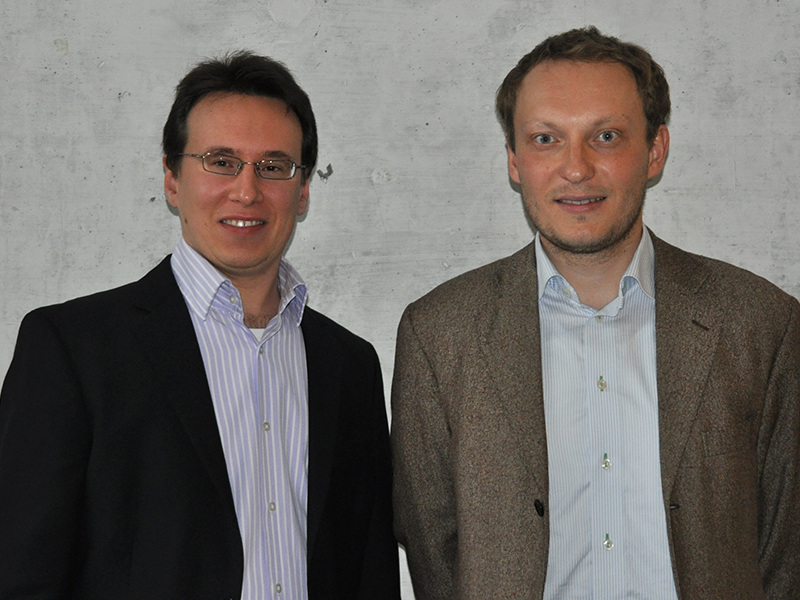Detox and software for power grids
The ETH-Zurich spin-offs Versantis and Adaptricity are heralding the beginning of a new era of detoxification methods and managing power systems. The two fledgling companies reached the third and final round of the competition Venture Kick. Both spin-offs received CHF 130,000 each in seed capital.

The stars Michael Jackson, Amy Winehouse and Heath Ledger all died from a drug overdose. But it isn’t only narcotics that kill people: in the liver fails, the body is unable to get rid of waste, which can be life-threatening. And although 450 million patients are affected by liver failure worldwide, there is a lack of simple and efficient detoxification methods.
The aim of the ETH-Zurich spin-off Versantis and its founder, Vincent Forster, is to plug this delicate gap. The young company has developed liposomes, tiny bubbles encased in a lipid membrane, which remove various toxins from the bloodstream quickly and efficiently. Thanks to its technical simplicity, this dialysis method can also be used in developing countries, where expensive detoxification treatments are few and far between.
ETH spin-off makes power systems intelligent

One of the goals of the Energy Strategy 2050 is to develop renewable energies. The energy transition to renewable energies poses completely new challenges to power system operators, who have to ensure a stable grid operation. Using novel simulation tools, The ETH-Zurich spin-off Adaptricity helps to prepare better for future challenges in grid planning and operations.
Adaptricity’s first product, the software “DPG.sim”, provides a comprehensive simulation environment for active distribution grids. It enables grid operators to integrate SmartGrid elements, such as decentralised energy storage or load management, in their planning, which means that they can make optimum decisions in costly grid expansion projects and use the existing grid infrastructure more effectively. “The electricity sector is changing rapidly thanks to the development of renewable energies, the liberalisation of the market and the increasing fusion of energy and information technology,” says Stephan Koch, one of Adaptricity’s co-founders, in a Venture Kick press release.
Competition to promote young companies
Venture kick is an initiative to promote innovative business ideas with the aim of doubling the number of spin-offs from Swiss universities. It is funded by private foundations, companies and private individuals. Every month, eight start-up projects are given the opportunity to present their idea to a panel of judges. Four of them receive CHF 10,000 each and qualify for the second round, where two teams win CHF 20,000 each. In the third and final round, a winner is selected and wins another CHF 100,000. The judging panel examines the team composition, the market potential and how the spin-off has developed in the nine months since the beginning of the competition. Students, researchers or professors from Swiss universities who are looking to start a company with their business idea are eligible to enter.
This text is based on a Venture Kick external pagepress releasecall_made.
